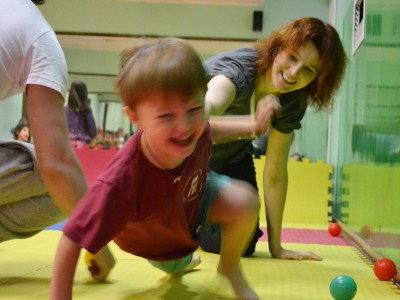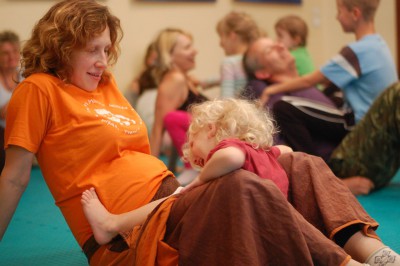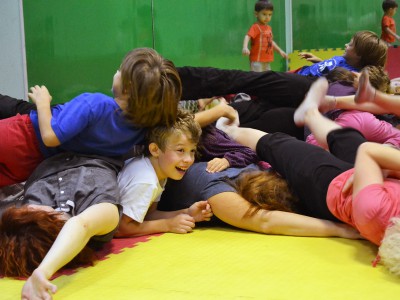Family Soft School Rules
The earlier that a child joins our course the better!
Up until their fifth birthday children are like clay, they are very malleable. The subtle deviations from normal development that they experience might lead to profound changes and distortions in their adulthood personalities. At the same time, children also have more opportunities for behavioral correction. This is why FSS is so important.
How to start exercising:
To start with you need the bare minimum: comfortable clothing, clean socks (we exercise without our shoes on), motivation, and the effort required to sign up for and come to our course. Furthermore, every parent has to attend a minimum of two adult trainings. You can start training in the mixed child and adult groups or you can attend the adult practices first. It all depends on how you want to be introduced to FSS.
There is no need to strictly follow the exercise to the letter.
They can be replaced by other closer activities, you can swap the roles with your child, or you can just run around or sit together hugging each other. Furthermore, you can enjoy watching others exercises, play with other children, or just have creative thinking brainstorming sessions. For example, just involve your child in a fun run! We simply need to play Yummy Games!
Required class participation:
- Being involved and playing with others
- Praising success
- Touching and hugging a lot
- Having fun
- Explaining with love
- Showing examples
- Encouraging exercise
Banned behavior:
- Laziness or shyness
- Straining yourself
- Teaching other things that you cannot do yourself
- Using force
- Talking over your child in his/her presence
- Bringing food and toys
- Going to extremes or crossing boundaries
One time, when a 2.5 year old boy climbed to the very top of our wall bars, he got carried away with his success and became scared. Up until that point, he had only gotten to the middle of the bars. He could not understand how he had gotten so high up! I observed as anxiety overcame him and he said, with fear in his eyes, “ Aye, Mummy”. However, instead of letting his mom help him, I told him that “Only a really brave boy could climb up so high.” This motivated him and he came down on his own. Afterwards, his mom encouraged him with physical touch
 Galina Abashkina
Galina Abashkina
Rostov-na-Donu
Young children are very attached to their parents. Up until they are 7 years old, they primarily learn by imitating their parents. They look up to their parents more than they look up to their teachers and peers.
Even if during the first session a child, sometimes as young as 2-3 months, doesn’t appear to be very involved in the overall process, they are still absorbing and feeling the overall ambiance. Over time, they begin to gradually apply the information and communication skills they have learned in their home, on the playground, and in their kindergarten. At this stage, the adults’ job is to exercise with their child and to help their child master our FSS material. Moreover, if the child sees their parents enjoying our exercises, they will think that they are interesting, pleasant and fun.
We are not advocating that you force your children to exercise or scold them for not doing it. That is why our trainers center our program around games, something that most children enjoy. The durations of our exercises range from 1-3 minutes to 15-20 minutes, depending on the child’s age and health. As the child’s age and experience increases, so does the duration of our exercises. We are all about promoting comfortable group. For the adults, one exercise can last 2-3 hours. This allows for the profound living of details.
We must participate in these programs because our children, especially those who grew up in cities, do not have the unique opportunity that we had in our childhood. They rarely get enough attention and affection from both of their parents, they don’t play active games in their yards with their friends, they don’t scamper off outdoors, they don’t tumble in the grass, and they don’t invent their own toys and games. Instead, the Kids of Today slouch at their computers and absorb commercials; they do not know how to properly run and communicate with other children. We do not need robots with sluggish bodies! We can fill in these gaps and give our children the necessities they need! Together we can promote their normal, healthy development.
- © 1993—2025. Write to Ella
Design: Igor Filimonov



